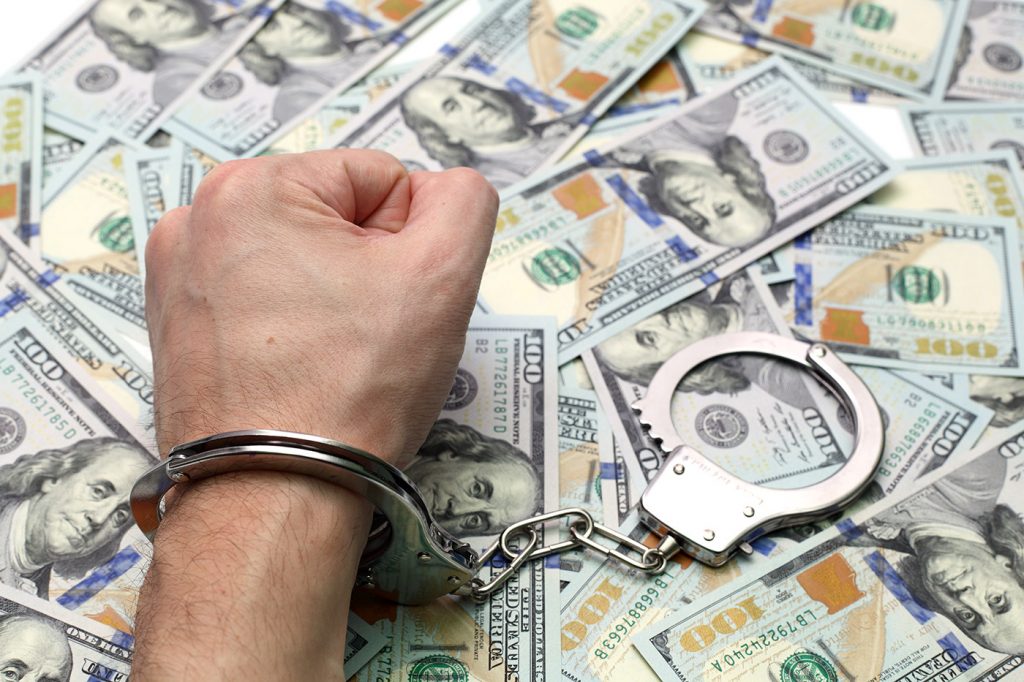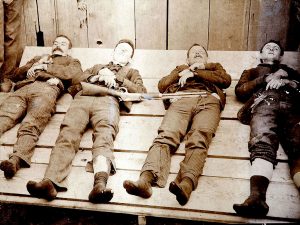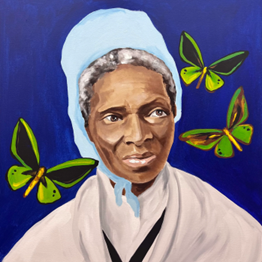Kalief Browder, an African American sixteen year old from the Bronx in New York City, was walking home from a party with his friend when he was stopped by police unexpectedly and charged with an alleged theft in 2010. The accuser, Roberto Bautista, was sitting in a police squad car and identified Browder and his friend as the thieves. The theft was a backpack that was said to contain $700 dollars, a credit card, and an iPod Touch. In his interrogation, with police, Kalief Browder insisted that he had not robbed anyone and that neither the backpack nor its contents would be found in his possession. Browder and his friend were then taken to the precinct where they were processed and taken to central booking. Within the following 48 hours Browder was interrogated and charged with robbery, grand larceny, and assault. At arraignment, bail was set at $3,000 dollars. If Browder’s family used a bondsman the amount would be ten percent plus fees or around $900 dollars for his bail to the bondsman. The bondsman would then post the entire bail amount with the court. The family could not pay $900 resulting in Browder remaining imprisoned at Rikers Island for the next three years.1


Debtors jail in colonial America was used to lock up those who owed money to the government. In today’s society, it translates into the cash bail system. 4 The for-profit bail system in the United States is used to keep those who are accused of breaking the law from harming anybody else or to be sure the accused will appear in court. If the accused is unable to pay the bail at the time of the arraignment, they may use a bondsman or they will remain incarcerated until their trial. For the poor, it is the latter. For Kalief Browder it was the beginning of the end. Only two countries in the whole world have a cash bail system, the United Sates and the Philippines. The cash bail system results in unnecessarily imprisoning citizens who do not pose as a threat to society and who most likely are not a flight risk. No pre-trial information is given to a judge before setting bail and there are no set standards on setting the amount for bail per case.5 Those who are wealthy enough to pay avoid the scarring effect prison has on one’s life. But for those who cannot afford bail, they face violence behind bars, debt, isolation, and at minimum a harsh punishment for those later found innocent, as in Kalief Browder’s case. This has created a two tier system in our judicial process. The first tier are wealthy offenders who can post bail and the second tier is everyone else who cannot afford equal justice or treatment.
Statistics show that 60 percent of people in jail from 2005 to 2015 were in jail awaiting trial. Three fourths of these individuals were accused of nonviolent crimes.6 This is alarming. On a national level, the United States imprisons persons who are essentially living in poverty and who are more susceptible to being involved or accused of a crime. In some instances, the court can grant “release on one’s own recognizance” or ROR. However, this is determined on a state by state standard. An example of this would be New York, the judicial system there would be more willing to grant ROR if the individual has a cellphone, has had a New York address for a year and has a job.7 These may seem like easy standards to meet, but consider those who are homeless, unemployed or cannot afford a cellular service on a regular basis. Their fate rests upon pre-trial bail. The bail money that the defendant does not have, requiring a bondsman, but not always attainable either.

- Johnson, Stephon “‘Time: The Kalief Browder Story’ Shows Failure of Justice System” New York Amsterdam News, March 2, 2017 http://blume.stmarytx.edu:2048/login?url=http://search.ebscohost.com/login.aspx?direct=true&db=a9h&AN=121613807&site=ehost-live&scope=site. ↵
- Schwirtz, Michael, and Michael Winerip “Kalief Browder, Held at Rikers Island for 3 Years Without Trial, Commits Suicide” The New York Times June 08, 2015 https://www.nytimes.com/2015/06/09/nyregion/kalief-browder-held-at-rikers-island-for-3-years-without-trial-commits-suicide.html. ↵
- Schwirtz, Michael, and Michael Winerip “Kalief Browder, Held at Rikers Island for 3 Years Without Trial, Commits Suicide” The New York Times June 08, 2015 https://www.nytimes.com/2015/06/09/nyregion/kalief-browder-held-at-rikers-island-for-3-years-without-trial-commits-suicide.html. ↵
- Steinberg, Robin “Robin Steinberg: What If We Ended the Injustice of Bail?” TED (June 18, 2016.) Https://www.youtube.com/watch?v=3B24RaqA33k . ↵
- Lally, Sean “Can the U.S.Radically Alter Its Cash Bail System?” (October 23, 2017) https://attorneys.us/can-u-s-radically-alter-cash-bail-system/. ↵
- Gunasekera, Yousha “Bail Means Jail: Debtor’s Prison for the Unconvicted.” Progressive 81, no6 (August 2017): 56–59 http://blume.stmarytx.edu:2048/login?url=http://search.ebscohost.com/login.aspx?direct=true&db=a9h&AN=123986116&site=ehost-live&scope=site. ↵
- King, Elizabeth “Inside the Fight to End Cash Bail” Pacific Standard January 08, 2018 https://psmag.com/social-justice/meet-the-reformers-taking-on-alec-to-end-cash-bail. ↵
- “Bail Bond Services for Waco, Texas” Kocian Bail Bonds December 14, 2015 https://www.bailbondskocian.com/. ↵
- “Bail Reform” Official Website – Assemblyman Rob Bonta Representing the 18th California Assembly District (March 29, 2018) Accessed September 21, 2018 https://a18.asmdc.org/article/bail-reform. ↵
- Gonnerman, Jennifer “Before the Law” The New Yorker December 08, 2017 https://www.newyorker.com/magazine/2014/10/06/before-the-law. ↵



123 comments
Paulina Holliday
Wow what an amazing writer she did a great job.
Mario Medina
Very great read. Will recommend to my fellow classmates to introduce a different perspective on the bail system in the United States.
Joseph
⭐️⭐️⭐️⭐️
Lisa Mossman
WOW!!! Makes you think how unfair our system can be to the less fortunate. Really opened my eyes. You would think if the individual cant afford bail then the system should hurry to process his case. They left him in there just so he would admit to something he didnt do!
Mario
Great read. Will recommend to my fellow classmates to introduce a different perspective on the bail system.
Montserrat Moreno Ramirez
It’s unbelievable the high percent rate of people incarcerated waiting just for trial. This particular case was extremely unjust and unfair, I can’t believe that police just put innocent people or civilians behind bars just because! I can’t imagine what they have to go through in those awful days or months in jail just because they don’t have the money to pay the bail.
kendrick Harrison
I can understand holding someone in custody while they wait on trial; It’s a safe way to ensure they show up or don’t skip town. I can also understand why a justice system would do the opposite in allowing them to walk freely until the trail begins–we wouldn’t want to hold (and thus punish) an innocent person.
Both scenarios make sense to me, assuming a.) the trial is within a short time period (something that would need to be decided) and b.) the holding facility isn’t a filthy jail cell (correction facilities need adjustments). However, all of that reason from before completely dissipates once the thought of incorporating both systems is introduced–it makes no sense. If your goal is to catch a criminal, what difference would the amount of money they have make in any part of the process? And if it turns out what the suspect can fork up makes a difference to those issuing justice prior to trail, who’s to say it won’t matter again to them during trail and after. It sounds like a bad idea.
Christopher Hohman
Nice article. The system for posting bail we have hear in the United States is so broken. Here in the United States everything is about profit, and making money, human rights always takes a back seat to making money. In the case of this young man, this system cost him his life. That is just absolutely tragic, non violent offenders should not be thrown in jail nor should they have their whole lives ruined by one crime. The system has to be fixed to ensure fairness, and that everyone’s human rights are respected
Julia Deais
I do not know much, or really anything about how bail works. However, this article did a great job of explaining what bail is and how it is used. I learned from reading this article that there are flaws in the justice system. When the writer says “innocent until proven guilty” it just made everything click in my mind. The people who were sent to jail that can not offered bail just wait in there until their hearing, but we do not know if they really committed that crime up to this point. If they are innocent they would just be sitting in there for days for a crime they did not do just because they did not have the money for bail.
Ariana Melendez
Reading this article was very eye-opening since I had never thought much of the bail system being corrupt. It is disappointing and sad to know that this is what keeps so many innocent people, usually impoverished and/or from a minority race, imprisoned. This article does a god job of showcasing the injustice of the for-profit bail system in the United States through Kalief Browder’s story.